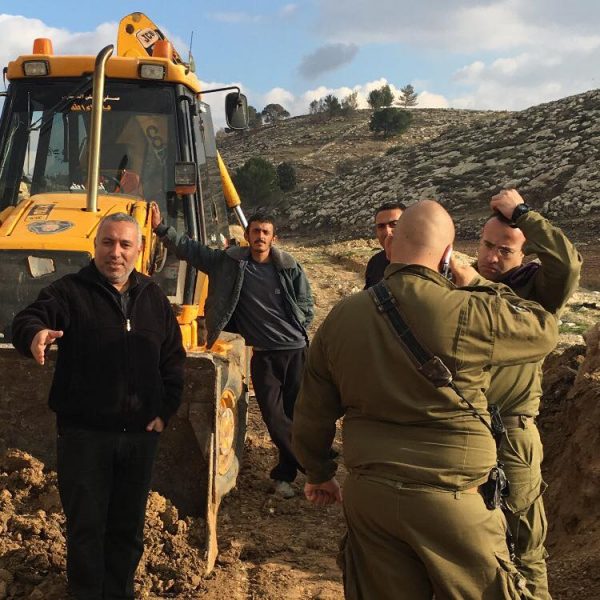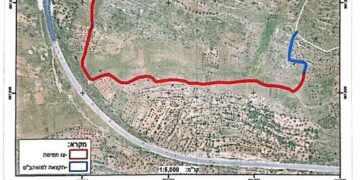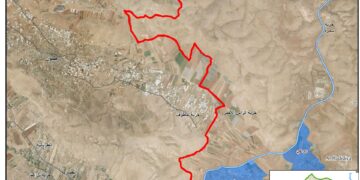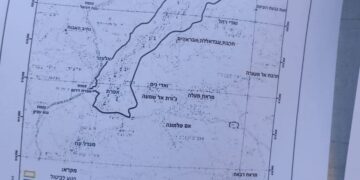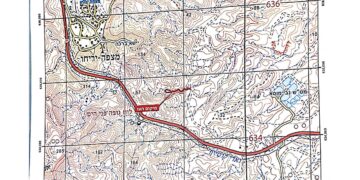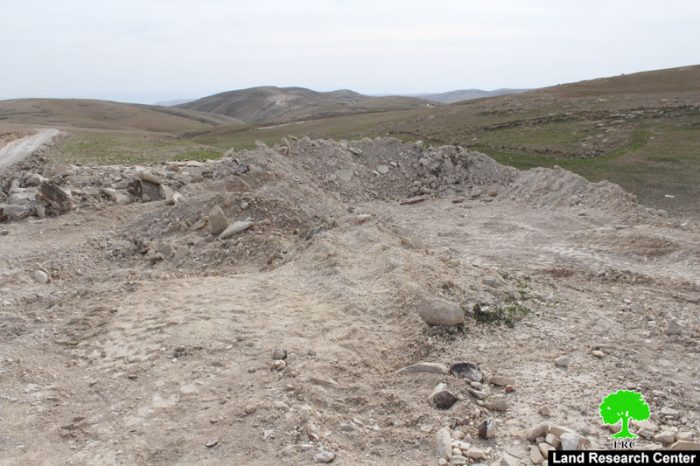- Violation: halting rehabilitation works
- Location: Al-Burj village- Dura
- Date: January 04, 2017
- Perpetrators: Israeli Occupation Forces
- Victims: residents of the area
Details:
Israeli Occupation authorities halted on January 04, 2017 some rehabilitation works on agricultural road in Al-Burj village, southwest Hebron governorate. It is reported that Israeli Occupation Forces arrived at the target location, stopped the machineries and attempted at confiscating the digger under the pretext of working in area close to the apartheid wall, which is as a matter of fact travels by the village's western and southern lands.
The following photos, credited to Al-Burj village council, show the rehabilitation works being stopped at time
It should be noted that the target road is located in the area known as "Al-Aqaba Al-Baida'", west of the village. The road is an old agricultural one that links the village to its agricultural lands in the south.
It is also reported that Israeli Occupation Forces previously ravaged this lands and damaged it to hinder farmers' access to the southern areas. Farmers with their tractors couldn’t reach for their lands as a result.
Al-Burj village council intended to rehabilitate the road in order to facilitate farmers' movement and access to their lands in this time of the year, which is best time for tillage and cultivation.
About Al-Burj:
It is located 25 km to the south west of Dura town. Its total area is 6 km2. it is surrounded by a number of Palestinian towns and villages besides the wall that borders the western side of the village. The village is inhabited by around 3000 people who largely depend on agriculture in their living. The village affairs are administered by a village council. Within its boundaries, there exist two schools, one for males and the other for females, 3 mosques, a kindergarten, a sports club, and a maternity clinic.
Like all the other localities around Dura, the village suffers from extreme water shortage. Before the year 2000, the village used to depend on a water network for its water supply. However, the Israelis cut the water supply in 2000. The villagers were forced to find an alternative which was the nearby water springs. However, the water shortage became severe when an Israeli colonist took over the main water spring which the locals used to largely depend on.
Prepared by
The Land Research Center
LRC

